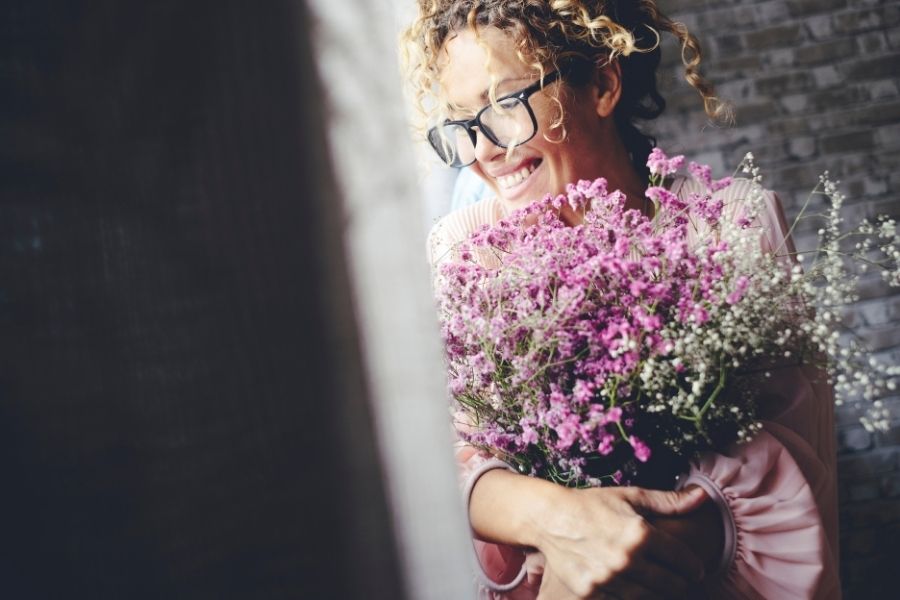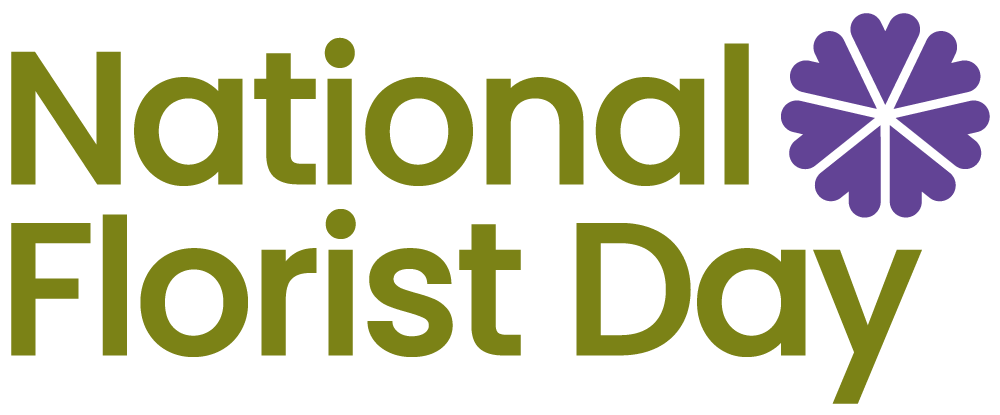Why buy flowers

Because they are good for you… and for anyone you give them to!
In fact, a simple bunch of flowers randomly placed by a florist a few weeks ago* actually stopped a young woman killing herself.*
So, this isn’t just us saying flowers and plants are good for you to boost sales … it’s both anecdotally and scientifically proven with some seriously grown-up research by revered institutes like Harvard, Rutgers and NASA!!
In fact, it was way back in 1989 when NASA first announced the health and wellbeing properties of plants. True the theory was tested under laboratory conditions and there have been updated and improved studies since.
But the rise of planthood (the adoption of many houseplants by home dwellers – particularly Millennials and Gen Zeds) is no co-incidence and indeed health and wellbeing connected to plants was the whole theme of the 2024 RHS Chelsea Flower Show Houseplant studios.
The rational is simple. Not only do plants have a natural air conditioning effect on spaces but the whole process of nurturing and growing is good for the soul and allows even non-garden owners to experience the delights and pleasures of working with nature.
Flowers are just as fabulous!
When it comes to flowers the positivity surrounding blooms is just as powerful. Because scientists at both Harvard and Rutgers, the State University of New Jersey carried out independent tests and came to the same conclusions. A bunch of flowers really can instantly boost mood levels and reduce anxiety.
At Harvard, a behavioural research study conducted by Nancy Etcoff, Ph.D., of Massachusetts General Hospital and Harvard Medical School, revealed that people felt more compassionate toward others, had less worry and anxiety, and felt less depressed when fresh cut flowers were present in the home.
Yes, it had been recorded that giving flowers created a feel-good factor but as Etcoff said. “What we didn’t know is that spending a few days with flowers in the home can affect a wide variety of feelings.”
In fact, the Home Ecology of Flowers Study at Harvard uncovered three main findings:
1. Flowers feed compassion
Study participants who lived with fresh cut flowers for less than a week felt an increase in feelings of compassion and kindness for others.
2. Flowers chase away anxieties, worries and the blues at home.
Overall, people in the study simply felt less negative after being around flowers at home for just a few days. Participants most frequently placed flowers in their kitchens, dining rooms and living rooms, where they spend a lot of time at home. They reported wanting to see the blooms first thing in the morning.
3. Living with flowers can give you an energy boost
Having flowers at home can have a positive carry-over impact on our mood at work, too. The study found that people were more likely to feel happier and have more enthusiasm and energy at work when flowers were in their home living environments.
And when it comes to the morning blahs Nancy and her team discovered that when they placed a small bouquet of flowers into their participants morning routines, people perked up.”
As a psychologist, I was particularly intrigued to find that people who live with flowers report fewer episodes of anxiety and depressed feelings,” Etcoff said. “Our results suggest that flowers have a positive impact on our wellbeing.”
Meanwhile over at Rutgers it was Professor of Psychology Jeannette Haviland-Jones, Ph.D who took lead on their research programme which explored the link between flowers and stress management.
A team of researchers spent 10 months exploring the link between flowers and life satisfaction in participants’ behavioural and emotional responses to receiving flowers. The results showed that flowers are a natural and healthful moderator of moods.
And not just a slow burn benefit … with flowers the impact was immediate. All study participants expressed “true” or “excited” smiles upon receiving flowers, demonstrating extraordinary delight and gratitude and a mood uptick that applied to every age group.
On the slow burn side flowers had a long-term positive effect on moods with participants reporting feeling less depressed, anxious and agitated after receiving flowers, and demonstrating a higher sense of enjoyment and life satisfaction.
And they provided shared connections too not just connecting family and friends … the reason why flower sales boomed during the pandemic … but when displayed in communal areas made a space more welcoming and sharing.
“Common sense told us that flowers make us happy,” said Dr Haviland-Jones. “Now, science shows that not only do flowers make us happier than we know, but they also have strong positive effects on our emotional wellbeing as well.”
So next time you think flowers and plants are an extravagance think again … they’re actually really rather good for you. In fact, as we at National Florist Day like to say, “calm and happiness in every petal and leaf.”
Research Findings
Original NASA report https://ntrs.nasa.gov/citations/19930073077
Rutgers Research (PDF) An Environmental Approach to Positive Emotion: Flowers (researchgate.net)
Harvard Research #1 Home Ecology of Flowers Study – About Flowers (safnow.org)
Harvard Research #2 Flowers and Morning Moods Study – About Flowers (safnow.org)
** Michaela Taylor, a mother of 3 from Wigan, had been suffering with severe post-natal depression since having son, and it had spiralled. On 21st March 2024 she had gone to Gathurst train station to end her life and on the way fa bunch of flowers left by a local florist, Sarah McCaig, owner of Olive Owl in Orrell, Wigan. Placed in random places, the mini bunches were in celebration of International Women’s Day and carried the message “Where there is a woman there is Magic, enjoy your flowers darling, you’ve earned them.”
Posting on X as MamaMichaelax, Michaela wrote “I’ve been hesitant to share this, but here it goes. Before my admission, I’d gone to the train station to end my life. I arrived + was met with these blooms. They told me that I mattered + held me safe until others arrived. Never underestimate the impact kindness may have.”
Talking later she said “When you’re feeling actively suicidal, it’s almost impossible to think rationally. But it was something about Sarah’s flowers and the note they came with that told me I mattered and kept me safe until I felt able to reach out for help. I am indebted to Sarah and my kids still have a mother thanks to the kindness she showed that day.
As a follow up Sarah is aiming to launch a movement called #PetalsofPositivity … a similar concept to the original Lonely Bouquet campaign launched back in 2013 by Emily Avenson.



